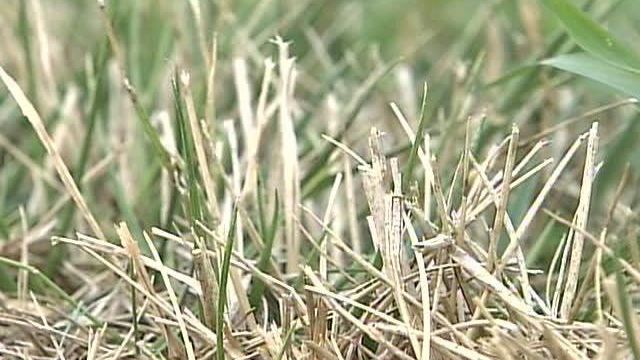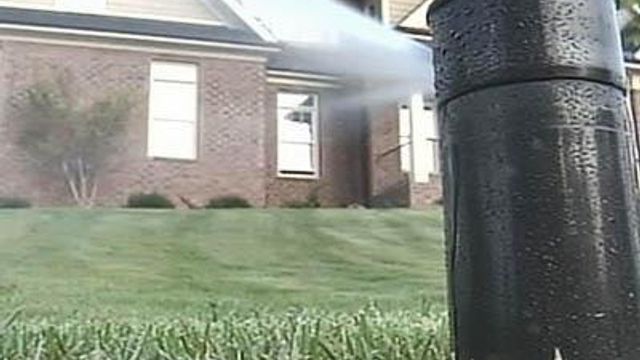Raleigh, State Eye Tougher Water Rules
As the drought across North Carolina worsens, the Raleigh City Council has authorized City Manager Russell Allen to implement tougher restrictions on water consumption.
Posted — UpdatedDozens of counties across central North Carolina are in severe drought, according to a federal report issued Thursday. The U.S. Drought Monitor lists 58 counties, including most of the Triangle, as experiencing severe drought conditions. That is up from 18 counties a week ago.
Meanwhile, 16 counties in western North Carolina are experiencing extreme drought, up from seven a week ago, according to the report. Much of eastern North Carolina remains in moderate drought conditions, while a few coastal counties are considered abnormally dry.
WRAL Meteorologist Mike Maze said the intense heat during much of last week and the continued lack of rain combined to push many counties from moderate to severe drought conditions. He said forecasts call for an above-average chance of rain during the next two weeks, however.
Mayor Charles Meeker said Raleigh would adopt stricter water limits if the city doesn't get significant rainfall by the end of the month.
The levels at Falls Lake, the city's primary reservoir, and other area lakes are about 65 percent of normal levels, Meeker said. Although the city has enough water to last until January, he said adopting tougher restrictions would "be prudent."
"We take this very seriously because you have to have water to run the city," Meeker said. "It's one of these things the public has to keep an eye on."
Ed Buchan, a water conservation specialist with the city's Public Utilities Department, said the first two weeks of this month have Raleigh on pace to record the driest August in the 80 years the city has kept records.
"We've never seen (the level of Falls Lake) drop this fast," Buchan said.
About 40 million gallons evaporate from the lake daily during hot, sunny weather, and area residents have twice set water consumption records in the past week as they cope with triple-digit temperatures.
Raleigh adopted mandatory water restrictions at the beginning of July, and Meeker said the continuing drought leaves the city with little choice but to tighten the taps just two months later.
"I apologize to anyone who just started the restrictions July 1 and now we're looking at changes as of Labor Day, but that's what the situation calls for," he said.
The stiffer Stage 1 rules would limit lawn-watering and car-washing by residents in Raleigh and other Wake County towns that buy water from the city.
- Sprinkler systems could be used between midnight and 10 a.m. on Tuesday (odd-number addresses) or Wednesday (even-number addresses).
- Hoses with sprinklers could be used from 6 a.m. to 10 a.m. and 6 p.m. to 10 p.m. on Tuesday (odd-number addresses) or Wednesday (even-number addresses).
- Hand-held watering could be done the same times and days as sprinklers, as well as on Saturday (odd-number addresses) or Sunday (even-number addresses).
- Cars could be washed only on weekends, although commercial car washes would be allowed to operate seven days a week.
Landscaper Mike Harris said Raleigh's three-days-a-week watering restriction may actually help your lawn.
"If you over-water this time of year, you can create diseases, the brown patch, the fungus," he said.
Gov. Mike Easley ordered state agencies to stop non-essential water use to all 74 counties in extreme or severe drought conditions, extending an earlier order. He also called for residents in those counties to cut water consumption by 10 percent.
"The counties are working with us, the people are voluntarily helping, and we need to keep doing that," Easley said. "I don't want to do anything mandatory if I don't have to."
Sixteen public water systems statewide have enacted mandatory water restrictions, while another 36 systems have adopted voluntary limits. Systems serving about 52 percent of the state's population have no restrictions.
• Credits
Copyright 2024 by Capitol Broadcasting Company. All rights reserved. This material may not be published, broadcast, rewritten or redistributed.






